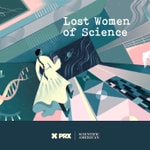Science Quickly – Détails, épisodes et analyse
Détails du podcast
Informations techniques et générales issues du flux RSS du podcast.


Classements récents
Dernières positions dans les classements Apple Podcasts et Spotify.
Apple Podcasts
🇨🇦 Canada - science
10/08/2025#71🇺🇸 États-Unis - science
10/08/2025#57🇨🇦 Canada - science
09/08/2025#53🇺🇸 États-Unis - science
09/08/2025#43🇨🇦 Canada - science
08/08/2025#79🇺🇸 États-Unis - science
08/08/2025#43🇨🇦 Canada - science
07/08/2025#64🇺🇸 États-Unis - science
07/08/2025#46🇨🇦 Canada - science
06/08/2025#95🇺🇸 États-Unis - science
06/08/2025#46
Spotify
Aucun classement récent disponible
Liens partagés entre épisodes et podcasts
Liens présents dans les descriptions d'épisodes et autres podcasts les utilisant également.
See allQualité et score du flux RSS
Évaluation technique de la qualité et de la structure du flux RSS.
See allScore global : 38%
Historique des publications
Répartition mensuelle des publications d'épisodes au fil des années.
How Racism Might Be Accelerating Aging and Menopause
mercredi 4 septembre 2024 • Durée 14:45
In Sickness and Age: Changing Family Structures and Caregiving (Part 1)
vendredi 30 août 2024 • Durée 19:47
Olympic Athletes Swim the Murky Seine, and Astronauts Are (Still) Stuck on the Space Station
lundi 12 août 2024 • Durée 09:35
Podcasts of the Year: What Better Gift for the Holidays Than a Monstrous Mystery?
mercredi 20 décembre 2023 • Durée 12:04
Sheep's Face-Reading Skills Stand Out from the Flock
mercredi 8 novembre 2017 • Durée 02:34
Nearby Exoplanets Invigorate the Search for E.T.
mardi 7 novembre 2017 • Durée 03:40
Bison Comeback Story Has a Bronx Accent
samedi 4 novembre 2017 • Durée 03:09
Mammoth Remains Seem Mostly Male
vendredi 3 novembre 2017 • Durée 02:50
Physics Phenomenon Reveals a Pyramid's Mystery
jeudi 2 novembre 2017 • Durée 02:48
A Moth with a Potent Cocktail of Poison
mercredi 1 novembre 2017 • Durée 03:39









